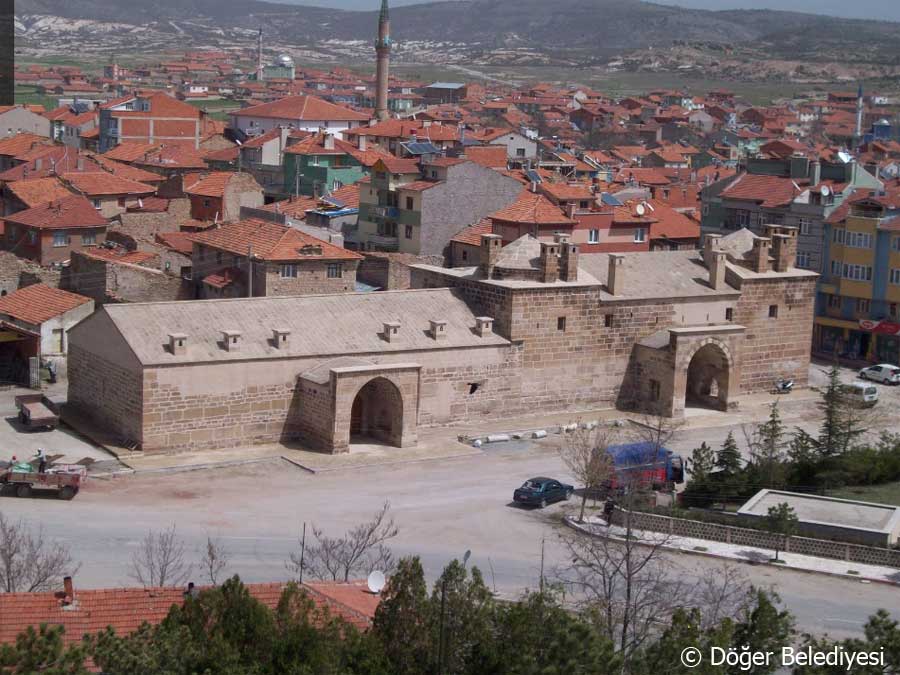 |
| Döğer Han in Phrygia | |||
 |
|
||
|
The caravansary Döğer Han |
|||
|
The caravanserai Döger Han, a building from Ottoman times, was built in 1434 under Sultan Murat II. It is very different from the older Seljuk caravanserais, as they can be found on the Mediterranean coast, for example. These usually had a large number of open cells grouped around a large open courtyard. Often they also had a smaller, closed hall. |
|||
|
|
|||
|
The caravanserai was built in two parts from the local tuff. A two-storey main section measuring 29 x 13 metres and a 27 x 13 metres large, presumably subsequently constructed side wing. Designed as a shelter for pack animals and goods, the wing is divided into six main sections connected by pointed arches. |
|||
|
|
|||
| The lower part of the main part consists of open cells. | |||
|
|
|||
| Former sleeping room of the guests | |||
|
|
|||
| The mosque with the prayer niche | |||
|
|
|||
| The dome of the mosque | |||
|
A staircase opposite the entrance leads to the first floor, the bedrooms and in the middle a small mosque, whose round dome set on an angular body has been reconstructed in recent years. |
|||
|
|
|||
|
|
|||
| The portal of the two-storey wing | |||
|
|
|||
|
Unlike the Seljuks, the Ottomans did not adorn the portals of their caravanserais with the ornamentation common to Seljuk caravanserais. There is also no inscription indicating the year of construction. There is only one document dating back to 1434 and Sultan Murat II. |
|||
|
|
|||
|
The caravanserai in Döger was for a long time a dilapidated ruin, the backside of which was destroyed by an earthquake. However, the preserved building fabric was excellently suited for the recent renovation and could thus be saved from complete deterioration. |
|||
| Photos: @chim, Monika P. | |||
| Translation aid: www.DeepL.com/Translator | |||
| Source: Wikipedia and others | |||
|
|
|||

